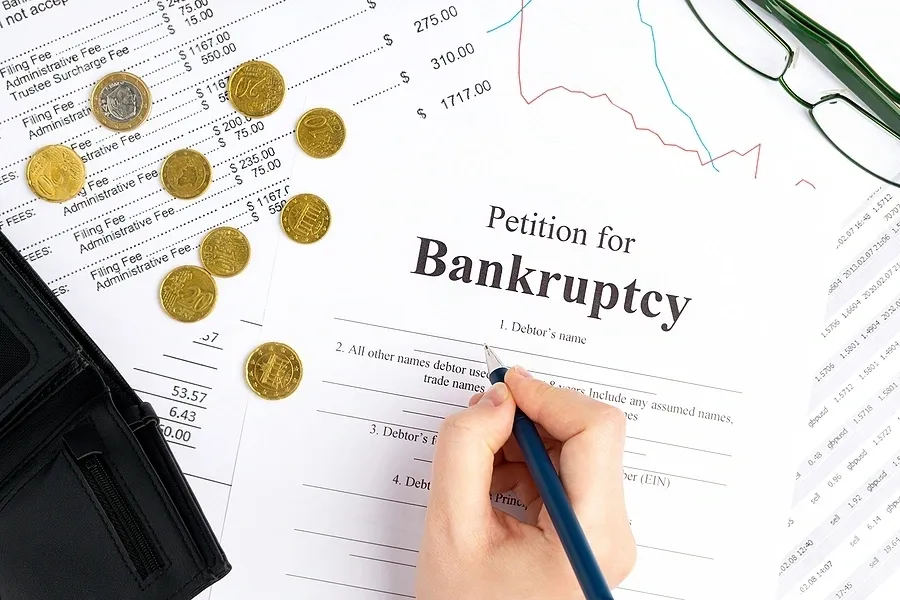Filing bankruptcy is a option that can be the difference between continually drowning in debt and getting back on your financial feet. If you are struggling with high amounts of debt and cannot see any way to repay it, bankruptcy can help. It will not remove all your debt, but it could help you find workable ways to pay your obligations and relieve you of certain debts.
If you are thinking of filing bankruptcy as an option to get out of overwhelming debt, here is some guidance about that step. Keep reading to learn about whether or not bankruptcy may be right for you and, if so, which type of bankruptcy is best for your situation.
Will Filing Bankruptcy Get Rid of Debt?
Filing bankruptcy can get you out of debt. This happens through liquidation, dismissal, or a repayment plan. If the debt is too high compared to your income, you may be able to get it reduced or liquidated through bankruptcy. Liquidation means elimination of unsecured debt like credit card debt or medical bills. Additionally, bankruptcy means that your creditors must stop coming after you.
Types of Bankruptcy
There are several types of bankruptcy that you can file depending on your financial situation. The main types of bankruptcy for individuals are:
Chapter 7 Bankruptcy
This type of bankruptcy involves a court-ordered liquidation of some or all of your assets to repay your debts. Not everyone who files for Chapter 7 bankruptcy protection is eligible for this type of bankruptcy. Having large amounts of debt that you cannot pay off often affects your credit score so though bankruptcy also has an effect on credit score, it does eventually come off your credit score.
Chapter 13 Bankruptcy
This type of bankruptcy is designed to help you catch up on back debts while keeping your assets. It’s best to file Chapter 13 bankruptcy if you can’t afford to pay off your debts right away but are capable of repaying a portion of them in the future. You should speak with a bankruptcy attorney about your specific situation and which type of bankruptcy is best for you. At the end of the period designated for the repayment plan, whatever balances are left are typically discharged by the court.
Not All Debts are Eliminated
Most consumer debt can be liquidated during the bankruptcy filing process. However, certain types of debts cannot be liquidated. This means that if you have these types of debt, you will still have these obligations after filing for bankruptcy.
The types of debts bankruptcy cannot clear include:
● Alimony
● Child support
● Certain types of back taxes
● Certain types of personal injury settlements
Before recent changes in the bankruptcy laws, student loan debt could not be discharged in bankruptcy. However, this is no longer always the case. If you have any questions about whether your student loans would qualify for bankruptcy protections, it is important to discuss your specific case with the bankruptcy attorneys at Kain+Henehan. This will give you the best guidance.
Get Help from a St. Cloud Bankruptcy Attorney
Filing for bankruptcy can be a scary choice, but it can also be a positive and necessary course of action. Filing for bankruptcy is a right in the United States and it can help relieve you of the stress of trying to pay off debt that you cannot reasonably pay off. Though bankruptcy isn’t a magic wand that you can wave to get out of debt, it will help you figure out how to get your finances back on track. It will though stop creditors from harassing you!
Bankruptcy is an important part of the U.S. legal system. It’s a protection and a right. There is no reason to suffer under the mounting weight of the stress associated with the financial burden. It’s a system that’s there for a reason. Too many individuals and families get into debt for reasons out of their control like a medical emergency. Relying on bankruptcy as a tool that is legally available may be a good option.
Kain+Henehan are bankruptcy attorneys that are here to help you throughout the bankruptcy filing process. If you are looking for an experienced and kind bankruptcy attorney in the St. Cloud, Minnesota area or in the Twin Cities, we can answer any questions that you might have. Contact us by calling (612) 438-8006 or filling out the online form.

